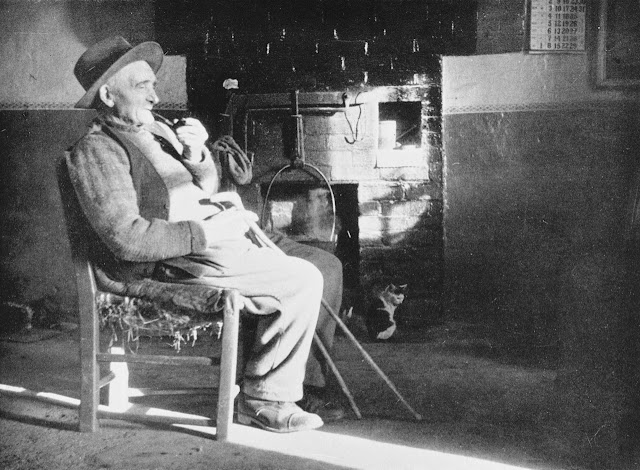I have to confess the greatest possible love of thrift. I do not care for a bed with gorgeous hangings, or for clothes brought out of a chest, or pressed under weights and made glossy by frequent manglings, but for common and cheap ones, that require no care either to keep them or to put them on.
For
food I do not want what needs whole troops of servants to prepare it and admire
it, nor what is ordered many days before and served up by many hands, but
something handy and easily come at, with nothing far-fetched or costly about
it, to be had in every part of the world, burdensome neither to one's fortune
nor one's body, not likely to go out of the body by the same path by which it
came in.
I
like a rough and unpolished homebred servant, I like my servant born in my
house. I like my country-bred father's heavy silver plate stamped with no
maker's name. I do not want a table that is beauteous with dappled spots, or
known to all the town by the number of fashionable people to whom it has
successively belonged, but one which stands merely for use, and which causes no
guest's eye to dwell upon it with pleasure or to kindle at it with envy.
I try to embrace the Stoic principle
that no circumstances are in and of themselves good or bad. Wealth or poverty,
luxury or subsistence, health or sickness will not make me better or worse,
because I can always find a way to practice a good life with any of them.
At the same time, I have slowly but
surely come to appreciate how both wanting and having less can well be the
easier path for me, and therefore a way of life I might prefer.
This may seem odd to some, on the
assumption that having more means being able to do more. Perhaps that is true
for them, and I wish them well, but I have increasingly found it is not true
for me. My own particular dispositions, and my own personal weaknesses, tell me
to avoid prosperity if I am at all free to do so.
Yes, an opulent life, like that
followed by many of the folks I went to school with, would certainly be more
gratifying, and more convenient, and would save me from all sorts of petty
worries. Most lawyers, doctors, or bankers are probably not familiar with the
struggle to put food on the table, or the frustration of having to choose
paying one bill at the expense of another. Yet at the very few times I have had
even the slightest bit more than I need, I discovered that it distracts me into
even worse difficulties.
It becomes too easy for me to feel
entitlement, to be tempted by greed, to become cold and distant from others, to
start thinking that I am somehow special because of what fortune has given me. What
I have, another may have not, and this easily leads to envy and resentment. That,
to me, is a far greater burden. I would rather lose my property than lose my
conscience, and I’m not sure I’d be very good at juggling them at the same
time.
Serenus, of course, was from the
Roman upper classes, and what he describes as thrifty may appear as downright
extravagant to me. I will never have any servants at all, of any sort, and I
will never eat with silver, whether fancy or plain. The ideal remains the same,
however, in kind if not in degree. We are all coming from different places, and
called to different things.
I will not choose to starve, or to
be kicked out on the street, or to be dragged into court for failing to pay my
debts, but I will choose to live on as little as I can, and to find pleasure in
the most humble of pastimes.
An old but comfortable chair, by a
cozy hearth, along with a simple but satisfying meal will do just fine. I do
also enjoy a dusty old book, a good hat, a sturdy set of boots, a pipe with a
bit of strong tobacco, and perhaps a quirky cat to keep me company.
Let me stop there, since I already
sense I may get carried away. There can be a very thin line between having just
enough and having too much, a line that can only be drawn by the ability of my
character to bear the lure of vanity.
Written in 4/2011


No comments:
Post a Comment